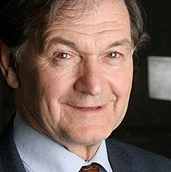…the chameleonic nature of numbers [is] so rich and complex that numerical patterns have the flexibility to mirror any other kind of pattern. (Douglas Hoftsadter in I am a Strange Loop, p. 159)
In my last post, I discussed the point of view known as ‘reductionism’ and the problems with that point of view. In summary, reductionism is the false belief that sciences that work with the smallest units of nature – atoms and below – are somehow more fundamental explanations of reality than emergent ones, such as thought or computation.
A few posts ago, I discussed computability and comprehension. My final conclusion was that while algorithms and explanations aren’t the same thing, you can’t have an explanation without having an algorithm. Continue reading

 A while back
A while back